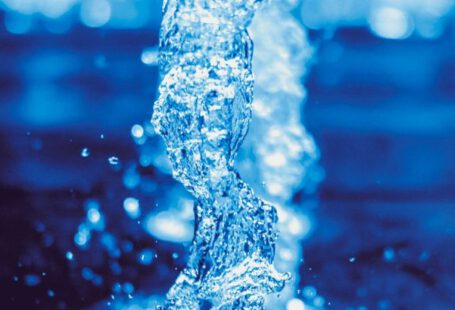A sparkling, crystal-clear pool is the epitome of luxury and relaxation during the scorching summer months. However, achieving and maintaining such pristine water requires the right pool filters. With a myriad of options available on the market, choosing the perfect pool filter for your specific needs can be a daunting task. To help you navigate through this process effortlessly, here are some key considerations to keep in mind when selecting the ideal pool filter for crystal-clear water.
Understanding the Basics of Pool Filters
Before delving into the specifics of selecting the right pool filter, it is essential to understand the primary types of pool filters available: sand filters, cartridge filters, and diatomaceous earth (DE) filters. Each of these filters operates differently and comes with its own set of advantages and disadvantages.
Sand filters are the most common type and are known for their easy maintenance and affordability. Cartridge filters are praised for their superior filtration capabilities and eco-friendliness. DE filters, on the other hand, offer the highest level of filtration but require more maintenance. By understanding the basics of these filters, you can better assess which one aligns with your pool’s requirements.
Consider Your Pool Size and Usage
The size of your pool plays a crucial role in determining the type and size of the filter you need. Larger pools require more powerful filters to effectively circulate and clean the water. Additionally, the frequency of pool usage should also be taken into account. Pools that are frequently used or located in areas with high debris levels may benefit from a more robust filtration system.
Assess the Filtration Efficiency
When aiming for crystal-clear water, filtration efficiency is paramount. The effectiveness of a pool filter is measured by its ability to capture and remove contaminants from the water. Look for filters with a high micron rating, as they can trap smaller particles, resulting in cleaner water. Additionally, consider the flow rate of the filter, as a higher flow rate can improve circulation and enhance filtration efficiency.
Evaluate Maintenance Requirements
Maintenance is a critical aspect of pool ownership, and the filter you choose should align with your willingness and ability to perform regular upkeep. Sand filters are known for their low maintenance requirements, as they only need to be backwashed periodically. Cartridge filters are also relatively easy to maintain, requiring occasional rinsing or replacement of cartridges. DE filters, while offering superior filtration, need to be backwashed and recharged with DE powder regularly. Choose a filter that fits your lifestyle and maintenance preferences.
Factor in Cost and Long-Term Savings
When selecting a pool filter, it is essential to consider not only the upfront cost but also the long-term savings. While sand filters are typically the most affordable option initially, they may incur higher operational costs over time due to the need for regular backwashing and sand replacement. Cartridge filters have a moderate upfront cost and lower maintenance expenses, making them a cost-effective choice for many pool owners. DE filters, although more expensive upfront, can provide long-term savings through their exceptional filtration efficiency and lower maintenance requirements.
Opt for Energy-Efficient Options
In today’s environmentally conscious world, energy efficiency is a significant consideration when choosing a pool filter. Look for filters that are ENERGY STAR certified or equipped with variable speed pumps, as these options can help reduce energy consumption and lower operational costs. By opting for an energy-efficient filter, you can enjoy crystal-clear water while minimizing your environmental impact and utility bills.
Selecting the Right Pool Filter for Your Needs
Choosing the right pool filter is a decision that should be based on your pool’s specific requirements, maintenance preferences, budget, and environmental considerations. By understanding the different types of pool filters available, assessing your pool size and usage, prioritizing filtration efficiency, evaluating maintenance requirements, factoring in costs and long-term savings, and opting for energy-efficient options, you can ensure that your pool remains sparkling and inviting throughout the swimming season. Make an informed choice when selecting a pool filter, and enjoy crystal-clear water for a refreshing and rejuvenating swimming experience.





